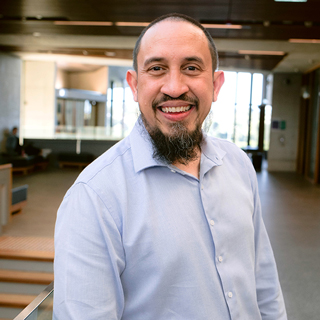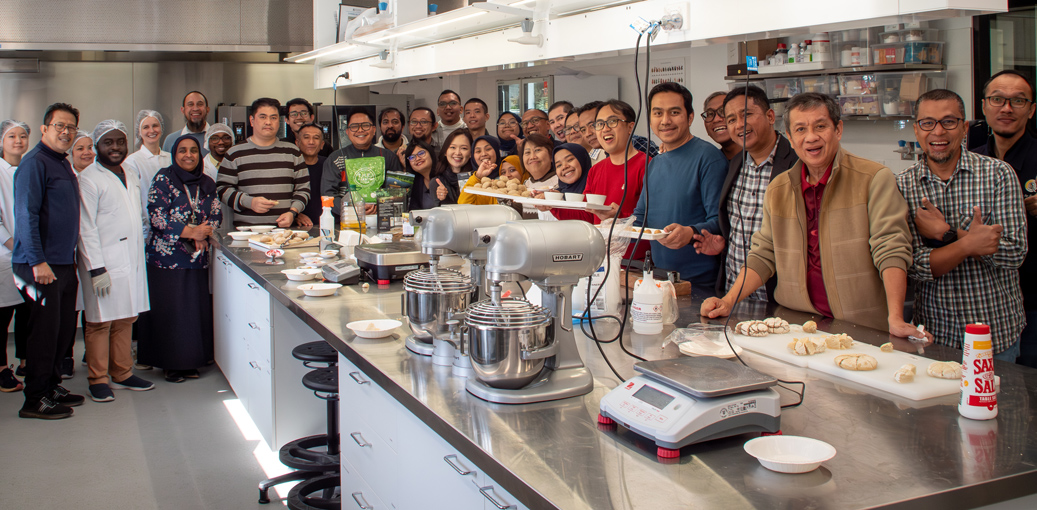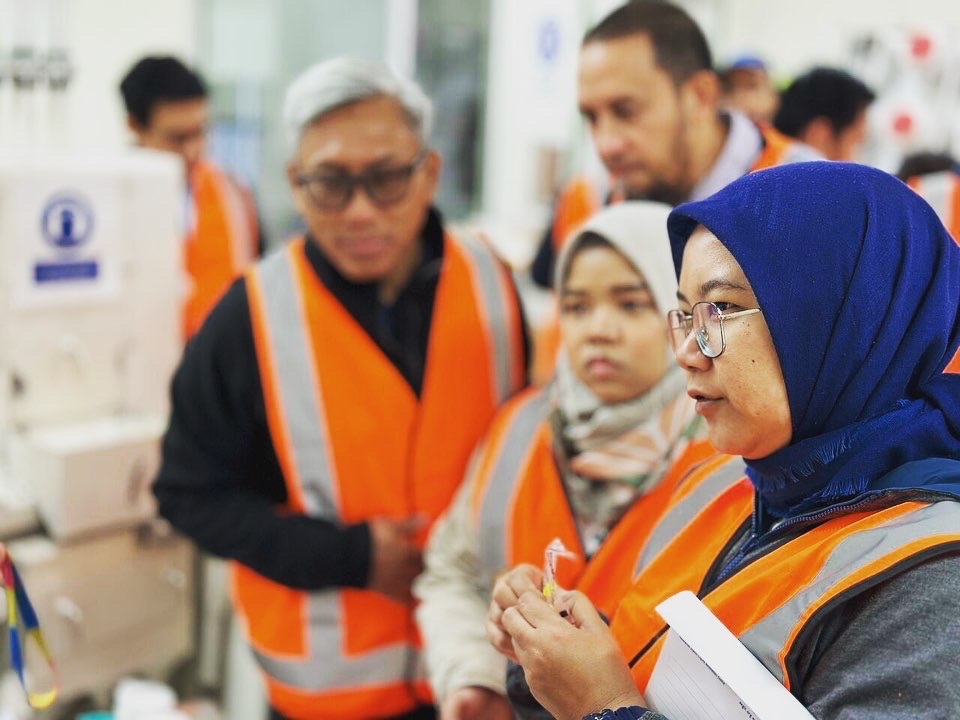A conversation with the leader of the Australia Awards Short Course on Grains Value Chain Leadership Program Associate Professor of Agribusiness Ammar Abdul Aziz and The University of Queensland (UQ) International Development.

Strengthening ties with Indonesia to drive meaningful change and enhance stakeholder engagement is the core of this capacity-building program, delivered by UQ experts with project management from UQ International Development.
Dr Ammar Abdul Aziz started his career as a bird's eye chilli farmer in Malaysia.
He worked on his small-holder farm for 8 years while completing his PhD at UQ on environmental management and ecological economics.
In 2016, he transitioned from farming to pursuing “a higher purpose”, dedicating himself to education and preparing future leaders in agriculture as an agribusiness lecturer at UQ Gatton.
Dr Abdul Aziz talks about his journey to working with UQ International Development
Why is the Australia Awards Short Course on Grains Value Chain Leadership Program important?
Indonesia is a key market for Australian wheat, often ranking among the top importers. With Indonesia’s wheat imports expected to reach 12.6 million tonnes in 2023-24, Australia could supply just under 50% (5-6 million tonnes), highlighting the market’s importance.
This bespoke short course equips future industry leaders with a comprehensive understanding of the grain value chain, involving key stakeholders like farmers. Participants will contribute to the grains sector’s growth and enhance the Indonesia-Australia relationship for long-term, mutually beneficial collaboration.
What do you hope participants achieve from the program?
First, I want participants to gain a deep, first-hand understanding of the processes and practices in Australia that affect the grains they receive. This includes exposure to the entire value chain, from production to distribution, to appreciate the complexity and quality of Australian grain production.
Secondly, I want participants to learn valuable lessons from guest lecturers, whose diverse experiences can help them develop their own leadership skills and perspectives.
Another key outcome is for participants to understand the collaboration between industry, government, and academia in the Australian grain sector. This teamwork exemplifies how different entities can work together effectively to achieve common goals.
I hope participants shift their mindset about leadership, understanding it starts with small actions like cleanliness and punctuality, which build a disciplined and respectful work ethic.
I aim for participants to form lasting connections, transitioning from strangers to a close-knit group with lifelong networks. These relationships can serve as a platform for future collaborations and career advancement within the industry.
Finally, I hope participants leverage the networks we’ve built in Indonesia and Australia to enhance their professional opportunities and contribute to the grains sector’s development. These outcomes will equip them with the knowledge, skills, and connections to become influential industry leaders.
I would also like to acknowledge the invaluable contributions of our team members – Professor Yasmina Sultanbawa, Dr Risti Permani, Dr Julius Kotir, Dr Ali Akber, Dr Yanti Muflikh (from IPB – Indonesia's leading agricultural university) and Dr Adhitya Kiloes (from BRIN) – who have been central in designing and delivering this course. Our distinctive approach emphasises systems thinking, enabling participants to interact with course materials and activities from multiple stakeholder perspectives. For example, participants are encouraged to ‘step into the shoes’ of a grain farmer, gaining an understanding of the challenges and operations from the farmer’s viewpoint.

How has this short course changed a participant’s life in Indonesia?
One participant, lawyer Hannin Pradita Nur Soulthoni, transitioned from her previous role in the grains industry to becoming an academic after completing the short course. While this might not seem like the ideal outcome from the perspective of retaining talent within the grain industry, it’s important to recognise the broader impact she can have in her new role. As an academic, she will continue contributing to the industry by educating future leaders and conducting research that could lead to further innovations in the sector.

This story illustrates how the course enhances professional skills and opens new career pathways, fostering a broader impact on the industry.
What are the benefits of ties with Indonesia in the grains industry?
The grains industry ties between Indonesia and Australia provide benefits beyond commercial gains, notably through a strong network that connects industry professionals and future leaders, fostering collaboration and knowledge exchange.
A unique feature of this Australia Awards Short Course is its industry partner mentorship, which offers participants valuable insights and lifelong connections with Australian industry leaders, providing ongoing support and guidance for continuous growth in the grains industry.
These ties bolster the broader Indonesia-Australia relationship, especially in the Indo-Pacific. As a key regional partner, and Tier 1 focus country for UQ, fostering strong agricultural links enhances mutual trust and economic stability.
These benefits highlight the importance of maintaining and expanding grains industry ties with Indonesia, contributing to professional development and long-term partnership between the two countries.
To collaborate on UQ International Development programs contact global.development@uq.edu.au
This short course is managed by Australia Awards in Indonesia (AAI) and implemented by The University of Queensland (UQ).
It is funded through the IA CEPA ECP Katalis program, an Indonesian and Australian government initiative specifically created to maximise the benefit of the Indonesia-Australia Comprehensive Economic Partnership Arrangement (IA CEPA).
This course is developed and delivered through collaboration with industry partners Grains Australia, the Indonesian Flour Milling Association (APTINDO) and the Indonesian Feedmills Association (GPMT).



